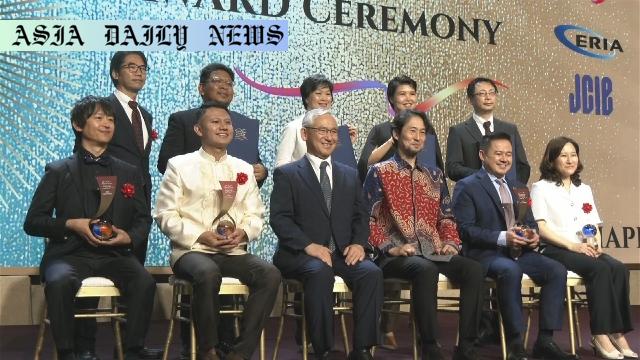Aging Populations: Creative solutions across Asia address the growing challenges of elderly care with diverse local approaches.
The Healthy Aging Prize for Asian Innovation honors innovative solutions for elderly care in Asia.
Grand Prize winners include healthcare systems, bicycle health checks, and vocational training programs for seniors.
Asian societies are driven to address aging challenges through diverse, localized strategies.

Introduction: Addressing Aging Populations in Asia
As Asia continues to experience significant demographic shifts, the region grapples with the challenge of caring for its growing elderly population. Efforts to develop creative and practical solutions have gained traction, with organizations and innovators focusing on improving health outcomes, fostering economic opportunities, and enhancing community resilience. The Healthy Aging Prize for Asian Innovation, recently held in Bangkok, highlights some of the most impactful initiatives across the region.
Recognizing Creative Solutions for Elderly Care
The Healthy Aging Prize, now in its fourth year, has become a platform to share innovative solutions from different corners of Asia. This year’s awards drew over 80 applications from 12 countries, reflecting the urgency and diversity of strategies required to tackle aging-related challenges. The awards aim to identify and disseminate best practices that other communities can adopt to meet their unique needs.
Grand Prize-Winning Innovations
One standout winner is a Japanese startup dedicated to revitalizing a remote island community. By utilizing home nursing services integrated with remote medical technology, this project ensures access to healthcare for the elderly despite geographical barriers. The approach symbolizes a blend of tradition and technology to improve lives.
In the Philippines, the Go Bike Project empowers young volunteers to monitor elderly residents’ health. By combining community support with sustainable transportation, this initiative not only enhances health vigilance but also fosters intergenerational collaboration. The project’s leader, Edren Llanillo, emphasized the critical role young people play in building disaster-resilient and healthier communities.
In Thailand, Chiang Mai University is bridging the digital divide among elderly citizens. Through vocational training programs, senior participants develop tech skills that enable them to secure income opportunities. This initiative recognizes the potential of older adults to continue contributing meaningfully to society when supported with the right tools and education.
Lessons from Regional Collaboration
According to Kano Isao, President of the Japan Center for International Exchange, the awards celebrate the universality of aging-related challenges but also underscore the importance of tailored solutions. Each society faces unique circumstances, and strategies like those honored at the awards demonstrate the adaptability required to meet these needs effectively.
Collaboration across borders allows for the sharing of ideas and the potential adaptation of successful initiatives to new contexts. The focus on practical implementation ensures that these strategies are not merely theoretical but offer tangible benefits to the communities they serve.
Looking Ahead: Building Sustainable Futures for Aging Societies
The initiatives recognized by the Healthy Aging Prize highlight the importance of innovation, community involvement, and cross-sector collaboration. As populations age, the need for such creative solutions will only grow. These projects provide a roadmap for sustainability, demonstrating that addressing aging is not merely about care but about fostering dignity, independence, and resilience.
Asia’s experience with aging populations offers valuable lessons for other regions facing similar challenges. By prioritizing creativity, inclusivity, and adaptability, societies can transform aging from a challenge into an opportunity for growth and collaboration.
Conclusion
The Healthy Aging Prize for Asian Innovation showcases the power of ingenuity in addressing one of the most pressing issues of our time. From advanced medical technology to intergenerational support and digital literacy programs, these projects highlight the myriad ways communities can adapt and thrive despite the challenges of aging. As these initiatives inspire others, they pave the way for a future where every elderly individual is empowered to live with dignity and purpose.
Commentary
Reflecting on Innovative Approaches to Aging Challenges
Asia’s approach to addressing aging populations is truly commendable. The region has demonstrated that innovation and collaboration can transform one of the most daunting global challenges into an opportunity for creativity and growth. The Healthy Aging Prize not only recognizes individual projects but also serves as a catalyst for meaningful change by sharing best practices across borders.
The Role of Community and Technology
The solutions highlighted at this year’s ceremony underscore the critical role communities and technology play in facing aging-related issues. From leveraging remote medical systems in Japan to engaging young volunteers in the Philippines, these projects emphasize that solutions are most effective when they are inclusive and anchored in local realities. It is inspiring to see how diverse regions can find common ground through innovative approaches.
Embracing Aging as an Opportunity
Perhaps the most significant takeaway from this initiative is the recognition of aging not as a burden but as an opportunity to build resilient and inclusive societies. Programs like Chiang Mai University’s vocational training challenge stereotypes about elderly individuals and demonstrate their potential to continue contributing to society when equipped with the right resources.
Future Perspectives
As other regions of the world begin to face similar demographic shifts, there is much to learn from Asia’s adaptable and forward-thinking strategies. The emphasis on collaboration, creativity, and practicality in addressing these challenges offers a blueprint for global efforts to support aging populations with dignity and respect.


